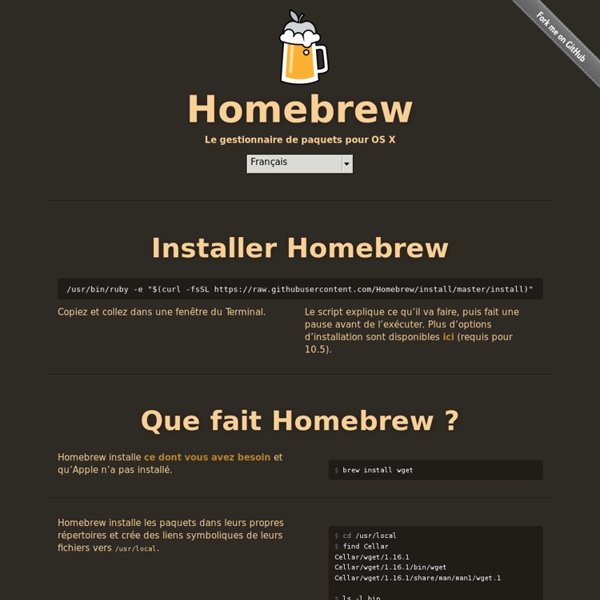



Consul Service Discovery with Docker :: Jeff Lindsay Consul is a powerful tool for building distributed systems. There are a handful of alternatives in this space, but Consul is the only one that really tries to provide a comprehensive solution for service discovery. As my last post points out, service discovery is a little more than what Consul can provide us, but it is probably the biggest piece of the puzzle. Understanding Consul and the "Config Store" The heart of Consul is a particular class of distributed datastore with properties that make it ideal for cluster configuration and coordination. The father of config stores is Google's Chubby, which was never made publicly available but is described in the influential Chubby paper. These specialized datastores are defined by their use of a consensus algorithm requiring a quorum for writes and generally exposing a simple key-value store. You can learn more about the challenges of designing stateful distributed systems with the online book, Distributed systems for fun and profit. Onward…
Apple étend la garantie des MacBook Pro 2011 à 2013 victimes de problèmes graphiques Après une pétition qui a rassemblé plus de 35 000 signatures, une class action intentée en Amérique, des bricolages artisanaux et des milliers de plaintes d'utilisateurs sur divers forums, dont les notres, Apple lance enfin un programme d'extension de garantie pour les MacBook Pro 2011 à 2013 victimes de problèmes graphiques. Apple dit avoir déterminé que des MacBook Pro, « en très faible pourcentage », peuvent être sujet à une image déformée, une absence d’image ou des redémarrages inopinés. « Apple ou un centre de services agréé Apple procédera gratuitement à la réparation des systèmes MacBook Pro concernés », est-il indiqué sur la page web dédiée à cette extension de garantie. Le programme débute aujourd'hui, le 20 février, au Canada et aux États-Unis. Les MacBook Pro concernés sont les suivants : MacBook Pro 15 pouces et 17 pouces fabriqués en 2011MacBook Pro 15 pouces avec écran Retina fabriqués entre mi-2012 et début 2013
Load-balancing Docker containers with Nginx and Consul-Template - Belly Card Engineering We are investing a lot of research and development time into leveraging Docker in the next generation of our internal infrastructure. One of the next components we need to build out to full maturity is being able to dynamically route web traffic from our Nginx load balancers to internal Docker containers in a performant way. We are very passionate fans of the work of HashiCorp at Belly, and they recently published a new project named Consul Template. We were using an earlier HashiCorp tool named consul–haproxy to reconfigure our Nginx load–balancers based on Consul data. Consul Template is a slightly more generalized tool that was fairly smooth to adopt. Let me walk you through a proof of concept I whipped up last week. Architecture At a high level, here is the construction of the current PoC. The Nginx container listens on the public port 80, and runs Consul Template. Finally, an example backend container is included for the load–balancer to proxy to. Breakdown Getting Started Help Wanted
Taper les caractères spéciaux Vous vous êtes souvent demandé comment faire pour taper tel ou tel caractère un peu bizarroïde dans une page de texte ? Comment faire, par exemple, pour taper les caractères suivants : ™ Δ ∑ © ~ et bien d'autres encore ? Afin de vous faciliter la tâche, voici comment faire pour taper les principaux caractères spéciaux dont vous pouvez éventuellement avoir besoin dans vos rédactions. Voici les principales combinaisons de touches permettant de taper des caractères spéciaux : Si votre clavier d'ordinateur est muni d'une touche Euro "€" (ce qui est bien sûr le cas de tous les ordinateurs depuis quelques années déjà), alors la question ne se pose pas ! Par contre, si votre "vieil" ordinateur est dépourvu de cette touche, voici la combinaison de touches qui vous permettra de taper également "€" aulieu d'un simple "E" ou du mot "Euro" en toutes lettres : alt + $ (Dollar) Comme quoi, on peut transformer des Dollars en Euros !!! Conclusion
Jeff Lindsay Consul is a powerful tool for building distributed systems. There are a handful of alternatives in this space, but Consul is the only one that really tries to provide a comprehensive solution for service discovery. As my last post points out, service discovery is a little more than what Consul can provide us, but it is probably the biggest piece of the puzzle. Understanding Consul and the "Config Store" The heart of Consul is a particular class of distributed datastore with properties that make it ideal for cluster configuration and coordination. The father of config stores is Google's Chubby, which was never made publicly available but is described in the influential Chubby paper. These specialized datastores are defined by their use of a consensus algorithm requiring a quorum for writes and generally exposing a simple key-value store. You can learn more about the challenges of designing stateful distributed systems with the online book, Distributed systems for fun and profit. Onward…